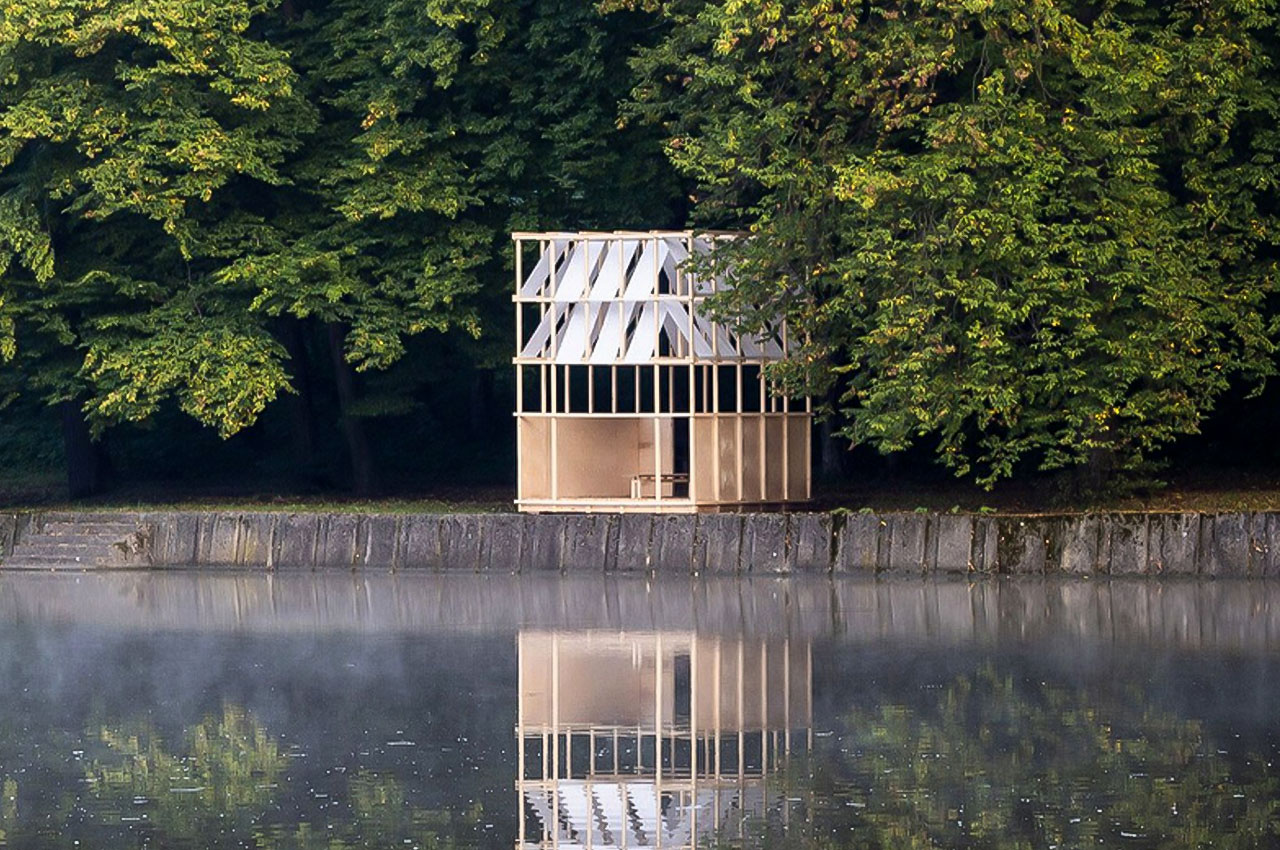
Located near the town of Český Těšín, Czech Republic, and designed to function as a little resting spot for visitors of the Hrabinka Lake is an adorable-looking building called the Tea House Pavilion. The Tea House Pavilion was designed by Slovakian studio Grau Architects and is a lantern-like structure with Japanese design influences. It functions as a space that provides respite and rest to those who want to relax after spending some time at the lake, or simply gaze at it while having a seat.
Designer: Grau Architects
The pavilion was built using spruce, plywood, and white fabric, and is a modern reinterpretation of traditional Japanese architecture. This is evident in the use of materials, and the simple yet intricate form of the structure. It features a low table at its center, which can be utilized for quaint tea ceremonies, or some much-needed alone time. The spruce wood used in the construction of the pavilion was locally sourced, which allows the pavilion to harmoniously blend into the landscape surrounding it, while also helping to maintain an efficient budget. “We decided to use a subtle spruce profile from a local source, aligning the design, our own requirements, budget, and the current market offer, which was also significantly limited after the Covid-19 pandemic. Wood ages naturally and we naturally accept it,” said Grau Architects.
Occupying nine square meters, the lower part of the building is clad in plywood, while the upper half is covered in a thin white fabric. The pavilion was inspired by traditional tea houses, and it can be used for tea ceremonies, but it is primarily reserved as a resting place. “The pavilion was designed for unknown visitors but at the same time for anybody who would like to take time by the river and contemplate for a while,” said the studio.
The pavilion’s floor plan is in the shape of a square, and measures three by three meters, which is sufficient space for six people to sit around a low table. At night, the pavilion lights up, giving a beautiful lantern-like vibe. “The subtle and light open construction refers to traditional Japanese interiors but brings modern elements into it,” the studio concluded.